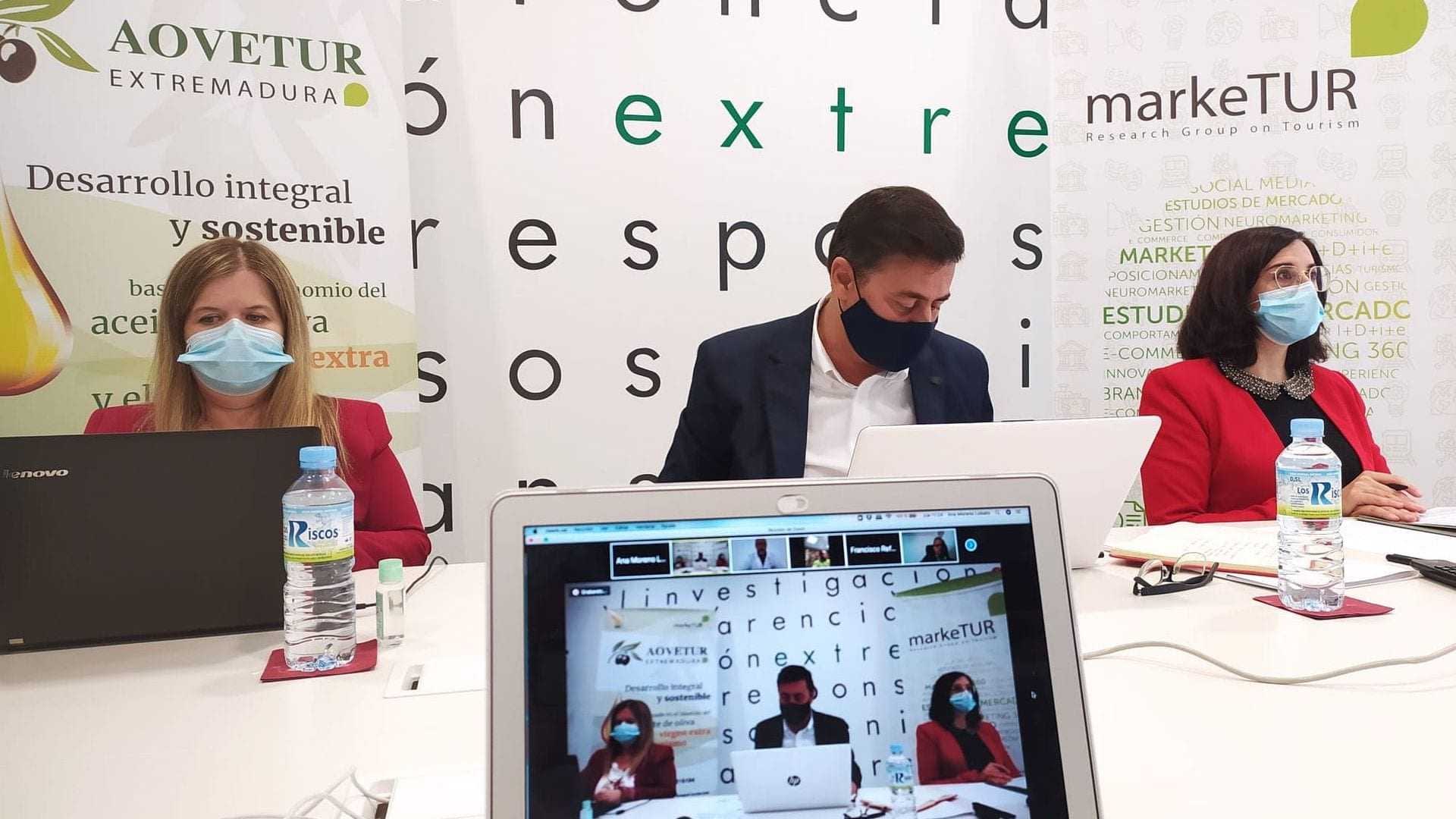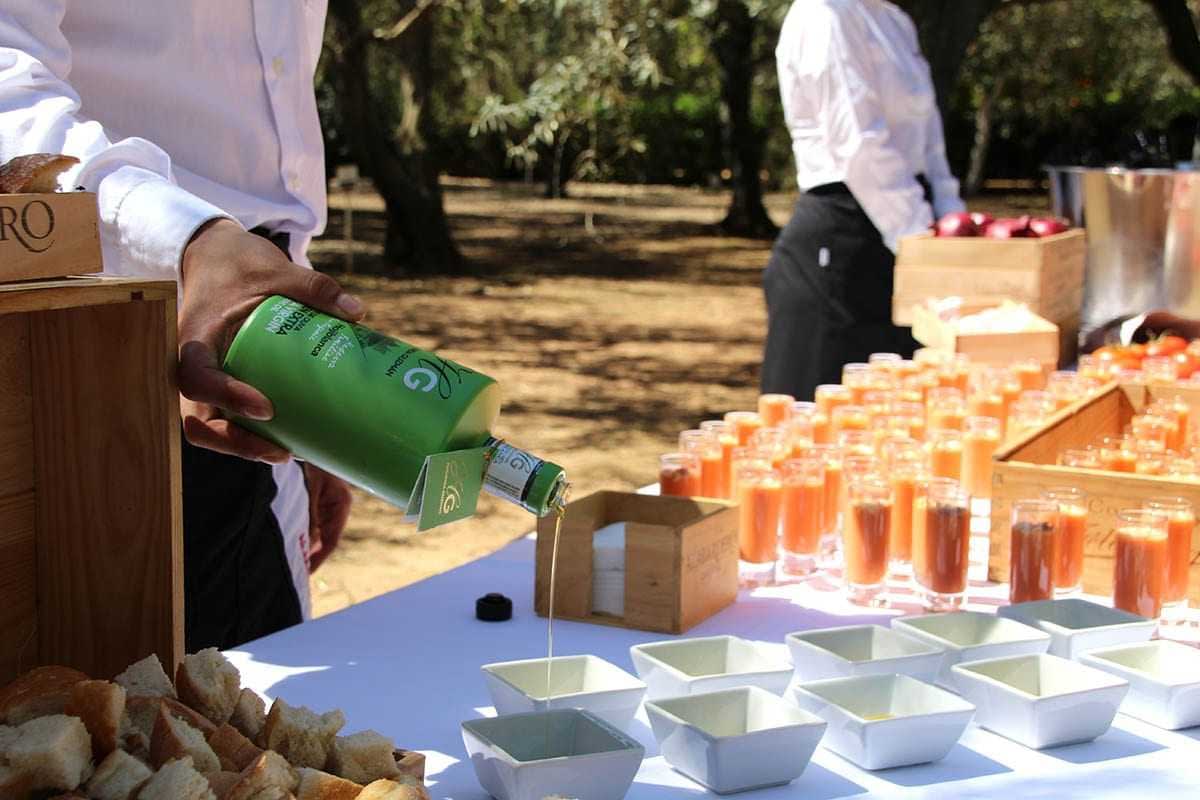Foodstuffs are flying off the shelves this year as people around the globe stay home to curb the spread of the Covid-19 pandemic. But as essentials such as olive oil remain necessary for more home-cooked meals, tourism has taken a major blow worldwide.
However, one burgeoning industry may be able to benefit from all of the uncertainty and government-mandated lockdowns: oleoturismo, or olive oil tourism.
We are living (through) a huge crisis that could turn into an opportunity for oleotourism. The sector offers what people demand now.
“Oleoturismo is a new word. A new concept,” said Elide Di-Clemente, part of the research personnel in the University of Extremadura’s department of business management and sociology. “Aside from people in the sector who are very rooted in tourism activities, most people do not know what it is.”
She went on to discuss the state of olive oil tourism in her rural region and the appeal that has been recognized since domestic travel picked up this summer.
See Also:Italy’s New Lockdown Hits Olive Oil Sector, Again“I think that olive oil tourism, which hasn’t yet got a main structure for welcoming tourists who want to take part in these types of experiences, must take advantage of the fact that many people are coming to our villages and rural areas,” she said. “Olive oil can be an opportunity to make them stay more than one night.”
Di-Clemente has spent the better half of 2020 focused on a specific project called Aovetur Extramadura, a proposal for a model for the sustainable integral development of rural areas in Extremadura based on extra virgin olive oil and tourism.

The workload was split with José Manuel Hernández-Mogollón, the study’s main researcher and group leader, among others of the MarkeTUR Research Group on Tourism.
The team sought to uncover what is in store for an industry trying to attain a new level of global recognition, and how oleoturismo can move forward in the wake of Covid-19. The project was co-funded by the European Regional Development Fund (ERDF) and Junta de Extremadura (Spain).
Spanning several regions in Spain, a country known for its production of the superfood, this industry relies on domestic tourists from larger towns and big cities, in addition to international visitors, such as holidaymakers from the United Kingdom, to stay afloat.
When tourists do decide to delve deeper into the art of olive oil production, oleoturismo introduces them to a sensory experience where tours at production facilities illustrate how the superfood is made, what the different types of the product taste like and why the history of this practice is imperative to understanding Spain’s equally rich heritage.
“Spain is the main producer of olive oil in the world and 80 percent of the Spanish olive oil is from Andalusia,” said Ana Sánchez of the Juan Ramón Guillén Foundation at Hacienda Guzmán, a producer in the region which also participates in oleoturismo. “Therefore, it is very necessary to explain to people the impact of the oil sector in our society, our economy, our history, and our culture.”

Hacienda Guzmán provides visitors with the opportunity to learn about the cultural importance of olive oil to the region.
The foundation, a non-profit organization with a central goal of strengthening oleoturismo in Andalusia, focuses on developing knowledge of the olive growing business domestically and internationally while coordinating the olive oil tours on the Hacienda Gúzman property. Sánchez and her colleagues are also advocating for UNESCO to designate the land of Andalusian olive groves as a World Heritage Site.
Meanwhile, the hacienda itself embodies the experiences that oleoturismo can capitalize on to propel the business into the future.
Through a tour of the mill where the oleotourists can witness the production process which results in the brand’s high-quality extra virgin olive oil, experience an olive oil tasting and immerse themselves in two on-site museums – one of which features more than 150 olive varieties – the property welcomes 5,000 visitors annually.
But promoting this sector of tourism can be challenging in more rural areas, and one strategy for olive growers in these regions to thrive during the pandemic involves attracting more tourists who are visiting popular destinations in other parts of the country.
Di-Clemente believes this to be a boon for Extremadura, which has already experienced difficulty gaining attention.
The olive that grows there – the Manzanilla Cacereña – is exclusive to the area, which makes the region different from any other in the country. Even so, visitors who have the potential to be converted to olive oil tourists may get distracted by the proximity of major destinations to other olive-growing regions.
“Extremadura has this problem because it has very bad communication with Madrid, so it is an unknown area to the international market,” she said. “That is why olive oil tourism is so important. It differentiates us [Extremadura], but other places and rural areas can seem very similar which are probably more accessible for tourists in Madrid or Seville.”
One example is Andalusia, where Hacienda Guzmán is, but Sánchez maintains that despite what lies ahead, the pandemic curbed any plans the business had to have a successful 2020.
See Also:At Hacienda Guzman, Promoting Olive Culture by Celebrating its Diversity“All the mills, haciendas and oil museums were closed during the lockdown, completely stopping their activity,” she said. “In our particular case, Hacienda Guzmán was closed from March 14, when the Spanish government declared the state of alarm, until September 1.”
“It means that we have canceled many tours, and many other reservations have been postponed to 2021, causing a drop in the oleotourism income,” she added. “It is harder for us because we use those resources to develop the foundation’s programs.”
Looking ahead, oleoturismo can realize a bright future if the correct steps are taken to cement a place for itself in the eyes of tourists who are not just from Spain but from around the globe.
“We think that connected with the trend of getting souvenirs from travels, the development of olive oil tourism can implement the selling of this product as a souvenir or as a present,” Di-Clemente said.
Sánchez echoed this sentiment, emphasizing tourists purchasing Hacienda Gúzman products, which include four different types of olive oil in addition to cosmetics. The on-site shop is popular with oleotourists and customers generally have a good idea of what they want to purchase by the time the visit is over.
Tours of olive groves and tastings are activities that can take place outside, but these visits cannot happen in a post-pandemic world without the proper health and safety measures.
It is this behavior that can further the advances that oleoturismo has already made in Spain and will boost the credibility of producers including Hacienda Guzmán that understand the importance of marketing sanitation to entice tourists.

Small, socially distanced tours and tastings at olive groves make oleoturismo a viable option in 2020.
“We make the tours in small groups, and we have an important advantage because the visit is mostly an outdoor tour,” Sánchez said. “Our visitors must wear a mask and maintain the interpersonal safety distance of two meters, and there is a hydroalcoholic solution at different points along the tour. We have worked hard in the summer in order to restart our activity in September offering a safe experience for our customers and our employees.”
There is also optimism for the future of oleoturismo in Extremadura where industry leaders understand that proper marketing and the activation of rural communities is necessary to draw enthusiasm from visitors. This collective positivity was seen during a Zoom conference to introduce the results of the study Di-Clemente and her team worked on.
“It is a potential activity that can actually respond to the need of the tourist consumer,” she said. “They want to take part and be active agents, not just be taken in a group, be explained things and see museums and landscapes in a passive way.”
The novel coronavirus challenged the priorities of tourists, and the organizations involved in the business of keeping them coming back, but the various aspects of oleoturismo make it the ideal activity in a world where social distancing and intimate gatherings outside are crucial.
“For the moment, the traditional tourist model we knew has disappeared. People are going to look for outdoor experiences in private groups and are very interested in healthy habits,” Sánchez said. “We are living [through] a huge crisis that could turn into an opportunity for oleotourism. The sector offers what people demand now.”









